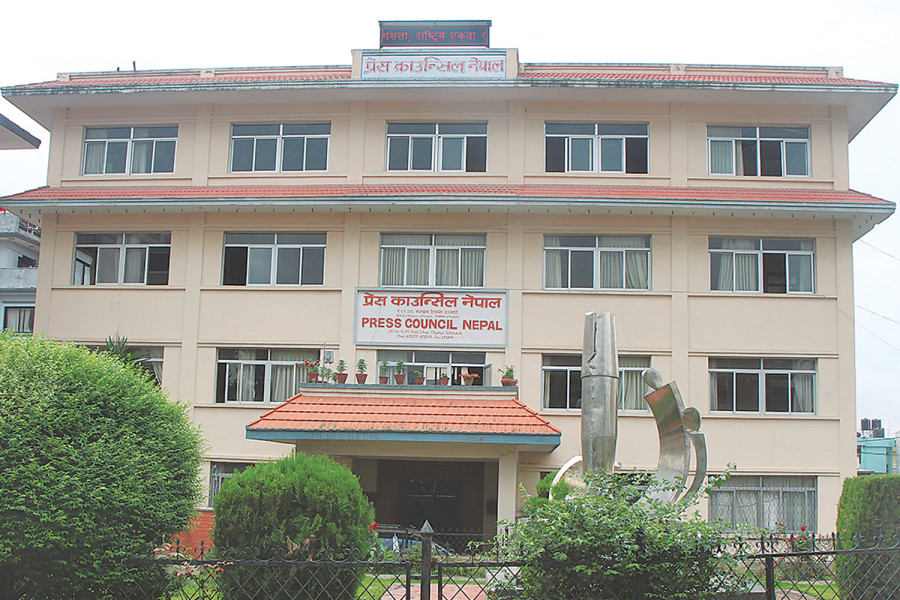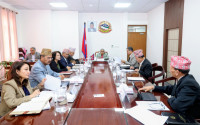National
Government retains disputed provisions in new media council bill
The communications ministry on Thursday registered the bill, which envisions a committee led by its secretary to select the chairperson and members of the council.
Binod Ghimire
The government has registered a Media Council Bill in the National Assembly, retaining some controversial provisions from the previous bill that the media fraternity decried.
The Ministry of Communication and Information Technology on Thursday registered the bill, which envisions a committee led by its secretary to select the chairperson and members of the council. The council is authorised to advise the government in formulating media policies and the media code of conduct. A similar provision in the bill registered by the KP Sharma Oli government in 2019 had met with criticisms. Though it was endorsed by the National Assembly, it couldn’t become law as the term of the lower house came to an end before the bill was endorsed.
Five years later, the new bill envisions replacing the existing Press Council with a new entity called Media Council. The council, led by a chairperson who qualifies to become a Supreme Court justice, will have 11 members in total, as per the bill.
Any Nepali citizen who holds a bachelor’s degree of law and has worked as Chief Judge or Judge of the High Court for seven years or has practised law for at least fifteen years as a law graduate senior advocate or advocate or has worked for at least fifteen years in the judicial or legal field or has worked as a gazetted officer first class or above of the judicial service for at least twelve years is eligible for appointment as a Judge of the Supreme Court.
It says a three-member panel chaired by the secretary of the ministry has an expert and a government joint-secretary as members. Media analysts and journalist associations have objected to the provision.
“How can a secretary-led committee select the chairperson who has the same status as a Supreme Court justice? This provision is objectionable,” Suresh Acharya, former president of the Federation of Nepali Journalists, the umbrella organisation of Nepali journalists, told the Post.
A few months ago, a panel led by Acharya that had the sitting president of the federation among members, submitted a report to the ministry suggesting an independent panel for the selection of the chairperson and members but its recommendations were not adhered to while finalising the bill.
“We will object to any provision that is not in line with our report,” Bipul Pokharel, president of the federation, told the Post. “We will soon come up with our official position on the bill.”
The new bill also makes it mandatory for the owner of the media houses to disclose his/her sources of income and investments besides those in the media houses. Every news related to the business operated by the media owner must have a disclaimer, as per the bill. The new bill, however, has removed several controversial provisions from the previous one.
The bill registered by the Oli government had proposed confiscation of media equipment and slapping fines up to Rs1 million and 15 years in jail for media persons found publishing offensive content or the content that undermined Nepal’s sovereignty, territorial integrity and nationality. It also provisioned mandatory licensing for all working journalists and licensing examinations for aspiring new journalists from the council.
The provisions, however, were removed by the National Assembly following widespread criticism from various quarters.
As per the new bill, if one deems the media content defamatory, they can file cases in district courts. The council will work to hold the media accountable through self-regulation, which is in line with the federation’s suggestions.
The bill will be presented in the upper house after the budget session commences. It will then be sent to a parliamentary committee for detailed discussions before it is presented for a vote. To become a law, it needs to be endorsed by both houses of the federal parliament.




 8.39°C Kathmandu
8.39°C Kathmandu














